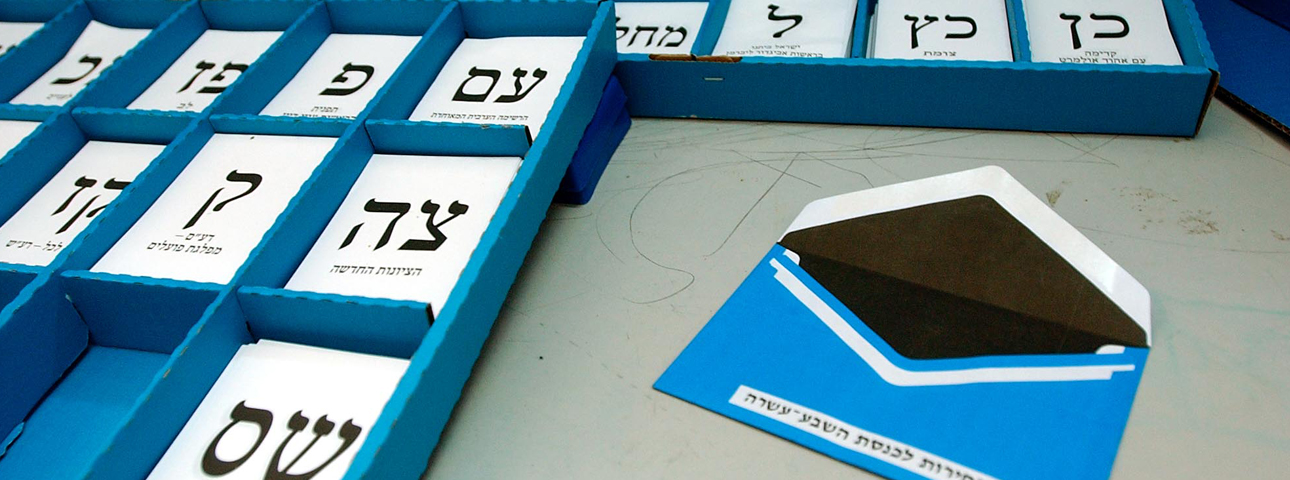Israel Should Adopt Open-Primaries System on Election Day
The Israel Democracy Institute, the Kohelet Forum, Israel 2050, The National Union of Israeli Students, and the Israel Leadership Forum have joined together to call for the implementation of a "primaries on Election Day" system in Israel. This approach is often referred to among academics as the "semi-open ballot"

Flash 90
In recent years, the public’s influence on the composition of party lists submitted for the Knesset elections is diminishing. This phenomenon is due both to the fact that fewer parties choose their lists through internal democratic elections (commonly referred to as 'primaries') —and because the number of registered political party members has decreased significantly over the last decades. As a result, the already tenuous connection between elected officials and voters is also diminishing. These developments make it necessary to reassess the situation and adopt a new system for one of the most significant processes in Israeli democracy: selecting lists of candidates for the Knesset.
The Israel Democracy Institute, the Kohelet Forum, Israel 2050, The National Union of Israeli Students, and the Israel Leadership Forum have joined together to call for the implementation of a "primaries on Election Day" system in Israel. This approach is often referred to among academics as the "semi-open ballot."
Such a system would allow voters, on the day of the elections, to choose not only their preferred party, but it would also provide them with the opportunity to choose a specific slate of candidates. It's notable that eighteen out of the twenty-one OECD member democracies with similar electoral systems as Israel’s (a proportional system with lists of candidates), have already adopted similar methods, providing voters to with greater input on the composition of candidate lists.
IDI, Kohelet, Israel 2050, The National Union of Israeli Students, and the Israel Leadership Forum believe that adopting a semi-open ballot system will strengthen the Members of Knesset’s commitment, responsiveness and responsibility to the voters. They also think that such a system will encourage parties to include more qualified candidates on their lists, while at the same time, lessening the negative influences of vote contractors and other potentially corrupting elements that exist in today's party primaries.
Yohanan Plesner, President of the Israel Democracy Institute: "It is time to recalibrate our electoral system. There is no perfect method for selecting candidates for the Knesset, but it is clear that the primaries system in its present form is no longer viable. It grants disproportionate power to corrupting go4ces such as 'vote contractors', while removing substantive ideological content from the parties' agendas. 'Open Primaries' on Election Day will increase public participation in the democratic process and strengthen the connection between the public and its elected officials."
Prof. Moshe Kopel, Chairman of the Kohelet Forum: "Each party should determine for itself which slots on their lists will be filled by pre-designated candidates and which should be chosen by voters as they cast their ballots. There is no possibility today for choosing even a portion of the Knesset candidates at the time of voting. This leads to the use of questionable methods, such as poorly-supervised primaries and smoke-filled rooms, the limitations of which are obvious."
Guy Globerman, co-founder of the National Union of Israeli Students: "Many citizens, especially young people, have begun to comprehend that they hold very little influence over their elected officials. We hope that in the next elections, legislation will be amended accordingly to allow the parties to successfully implement a 'semi-open ballot' system."

